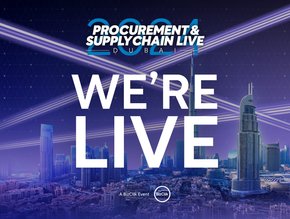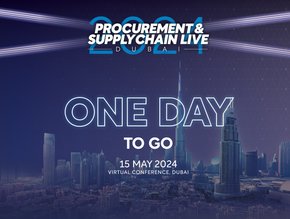Talent strategies for procurement leaders

With the ongoing war in Ukraine, energy price issues, and supply chain disruption, there is a catalogue of pressures facing procurement professionals.
So many global events have converged simultaneously to present a unique set of challenges, but how can talent strategies help businesses cope with such a web of issues?
Writing in a blog, Chief Marketing and Solutions Officer for Intelligent Spend and Business Network at SAP, Etosha Thurman, lays out three key approaches to talent.

Procurement talent: ongoing talent shortage
The first strategy is to provide focus on attracting and retaining employees to overcome the ongoing talent shortage.
The pandemic has caused significant changes and disruption to workplaces, and an opportunity to question the status quo.
“Being able to nurture existing talent, being able to upskill existing talent, being able to recruit young talent to the procurement function – these are all top concerns,” writes Etosha Thurman.
“And not just in procurement; logistics is another area where we’re seeing increased demand for that skill. However, we do not have the capacity or capability to meet demand.”
External workers as a pillar of procurement talent strategy
As businesses look to gain more control and flexibility, external resources have to be part of the wider talent pool if results are to be positive, says Thurman.
She adds that this requires the Chief HR Officer and CPO to collaborate on building a total workforce strategy.
“Businesses want to leverage contingent workers and service providers to get global reach, specialisation and agility,” writes Thurman.
She adds:”To be able to have the flexibility to expand or contract a workforce without the emotional task of restructuring or downsizing is important.
Meet workers where they are
The ability to remain agile is key to the evolving world of procurement, for the wider benefit of the business function and the demands of the talent pool.
Procurement teams need to make sure they have the crucial skills in their teams, while also investing in external resources and providing flexibility for workers.
This helps to mitigate risk, as the more dynamic workforce can then shift capacity to where labour is needed.
“In this age of uncertainty, procurement responsibilities have increased and are even more in the spotlight. Upskilling procurement talent is a vital part of being more effective and meeting the growing expectations of business stakeholders,” says Thurman.
Unlocking procurement potential
Talent strategy is a regular trend in the procurement industry to help businesses achieve the marginal gains they need for a competitive advantage.
Writing recently in Procurement Magazine, Sara Horder at Investigo, part of IN Group, explained why talent management is pivotal to procurement in such testing times.

Part of The IN group, Investigo is a leading recruitment agency, delivering talent to a large client base of blue chip corporations, agencies and start-ups.
“The moment you undervalue a role, is when the attraction doesn’t really stay alive,” she says.
“Feedback through interview processes is undervalued as a really good tool to retain your brand in the market, firstly because it allows a candidate to develop and see where they can improve if unsuccessful, and it also allows a business to reflect on what they want as well as retaining their brand and repeat applications in the future.”
Horder says that it's all about the process and brand you represent. “We have seen a big drive in employee branding and I think this is an important tool in terms of retaining and attracting talent. So it’s a great tool to both engage current staff, as well as to utilise to attract top talent to organisations.”
As a line manager, giving regular feedback is useful. It allows employees to address any concerns, develop their strengths and work on their progress.
“Personally,” says Horder, “I believe coaching is a massive element to success, where you are leading people to the answers rather than telling someone how to do it.
“It's very similar when dealing with a supplier as a procurement professional, because what value do you get when you tell them what you want, rather than taking them on a journey?"






